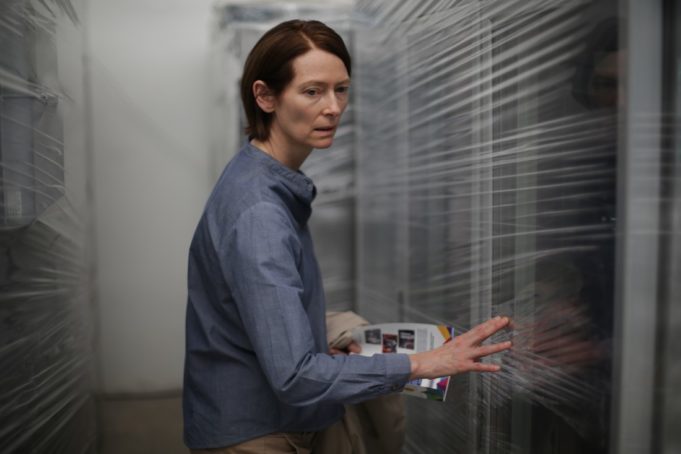I’ve mentioned the name of Apichatpong Weerasethakul here and there in the past 10 years or so, but none of his films have ever played in Fort Worth. A fair-sized army of film fans think that the Thai director is among the world’s greats, and I’m inclined to agree with them. His Memoria screens at the Modern Art Museum of Fort Worth this weekend, and while I don’t think it’s one of his best movies (or one of the best movies from 2021), you may well find it more accessible than his others, since it’s in English and Spanish rather than Thai. If you need an introduction to this unique artist, here’s your chance.
(A note on Thai naming conventions: It’s customary to refer to people by their given name rather than their surname, so I will follow form and call the director “Apichatpong.” If you’re confused about how to pronounce his name, you can just call him “Joe” — he studied in Chicago for some years and grew so tired of telling his American neighbors how to say his name that he simply adopted the name “Joe.”)
Tilda Swinton portrays Jessica Holland, a British expatriate in Bogotá who’s awakened one night by a loud sound that she describes as “a giant concrete ball dropped down a metal well.” She attributes this to the construction going on in the street, but then discovers that this is impossible. Vexingly, she hears the sound three more times in a crowded restaurant, and nobody else seems to notice. What is this noise that’s following her?
And what’s going on in this movie? We never learn the exact nature of Jessica’s work or why she’s in Colombia. We’re initially shown that Jessica’s sister (Agnes Brekke) is deathly ill, then she seems mysteriously cured in that restaurant, then we see Jessica signing her death certificate. Jessica meets a young sound engineer named Hernán Bedoya (Juan Pablo Urrego) to re-create the sound, then meets an old fish scaler also named Hernán Bedoya (Elkin Díaz), who appears to be the same person aged some decades. Rather than basic storytelling errors, these fit with the overall theme. Apichatpong’s films are obsessed with the liminal power and unreliability of memory, and here he makes us struggle to remember the sound we heard at the opening of the film.
Colombia turns out to be not so different from Thailand as a backdrop for the action, and the director seems at home in this tropical climate backed by high mountains. Apichatpong’s filmmaking is typically filled with lengthy, static medium shots. It’s downright ascetic, so it’s startling when he resorts to a hand-held camera to follow Jessica and young Hernán as they shop for a refrigeration unit for her plants. The saleswoman tells them, “In this cabinet, time stops,” which is one of Apichatpong’s abiding concerns. He cuts the austerity with some moments of pure rapture, like when Jessica stops in the halls of the university, in thrall to the sound of a jazz quartet playing. Old Hernán tells her that by touching the rocks and trees, he remembers everything that has ever happened not only in his current life but also in his previous incarnations going back to the beginning of time. Apichatpong’s world-view is driven by animism, the belief that God is in all the objects around us. Memoria’s insane late plot revelation notwithstanding, my gut tells me that his gay romance Tropical Malady and his label-defying Uncle Boonmee Who Can Recall His Past Lives are deeper explorations of his favorite themes. Nevertheless, this weekend presents a rare opportunity to experience this director’s vision on the big screen.
Memoria
Starring Tilda Swinton. Written and directed by Apichatpong Weerasethakul. Rated PG.












